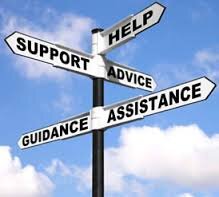Choosing A Career Counselor or Coach
Do it yourself or with professional help? Chances are if you really want to advance your career situation, you could benefit from professional assistance – to sort through all the options and develop a realistic plan – and this article can help you find guidance too! How?
I contribute to a group blog, Career Transition: The Inside Job. This blog, with our bios, serves as a directory of a large portion of the career counselors in Portland and is presented in a format that makes it easy for you to compare and contrast. All of the seven co-authors of this biweekly blog are Career Counselors or Coaches in Private Practice (what CCPP blog stands for) in the Portland, OR area. In fact, all of the blog authors/counselors have been contacted by new clients who first saw our name, photo and bio at the CCPP site.
Finding a good fit. Begin by reviewing our Bios and selecting several to examine more closely. Then, check out the articles your candidates have written on the blog. Our hunch is that will lead you to narrow the field to two to four of us to call or email. If you want to expand your list of potential counselors beyond these seven, or are in a different community, ask friends for references, or search the Web using phrases like Career Counselors (or Coaches) Portland.
Counselor or coach? A major distinction you will notice in the career field is counselor or coach, and you may want to determine which approach might best serve you. From the big picture standpoint, both CCPP Counselors and Coaches support people in making informed decisions about their career, as well as offer various tools that they can use—résumés, cover letters, LinkedIn profiles—to meet those goals.
Generally, counselors have chosen a path of more graduate education in counseling than coaches, with a master’s degree in their counseling specialty; further, many counselors have taken the extra step of 2,400 hours of supervision and a comprehensive exam in order to be state-licensed (LPC) or nationally-certified (NCC). This extensive training means that besides assessing who you are and teaching you sound approaches for landing a job, they can help with personal issues impacting a career. Also, only licensed counselors can administer assessments like the Myers-Briggs Type Indicator, and only counselors can bill third party or insurance.
Coaches tend to focus on techniques for increasing effectiveness as they partner with you in job search, and utilize strategies to help you identify goals and objectives to improve your personal and professional potential. The largest difference between the fields is that coaching is not a regulated profession. This means anyone can start a coaching practice and there is little professional oversight. Most reputable coaches, however, have a bachelor's degree and a coaching certificate. Certificate programs are much shorter in length than obtaining a master’s degree in counseling or a related field. Coaches count on their work experience more than years of education, in general. Each coaching certification has its own set of rules and regulations and is granted by various professional coaching organizations. For more information, see coach certification.
Test-driving a counselor. Once you have decided on an initial list of 2 or 3 counselors or coaches, you can further your research on the internet (e.g., website, LinkedIn, listings on other sites like Psychology Today, Yelp, etc.) or proceed directly to contact by email or phone. All of the CCPP practitioners will offer a prompt and detailed response to email or phone inquiries, and most of us will provide a complimentary consultation for a half-hour test drive—after all, as practitioners, we want to figure out if we are the one who can effectively help you achieve your goals.
Further, here are some broadly useful questions that you could ask each prospective counselor or coach:
- Approach: As a coach or a counselor, how would you help someone like me choose, change or advance my career?
- Qualifications: How long have you been a counselor or coach? What experience, education and training have you had? What do you specialize in? Do you offer career assessments?
- Cost: Hourly fee? Estimated number of sessions? Accept insurance or EAP?
- Subjective: No particular questions, though evaluate your impressions of the person’s warmth, insight, humor, coaching or counseling style (do you feel understood and helped in even the first conversation?)
After the test drives, give each practitioner a 1 – 5 rating on the above criterion, and the highest total—along with your gut—should tell you who can best help you. Otherwise, you can always go back to Finding above and refresh your list.
Going further. If you do not “click” with one of the seven CCPP practitioners, an added advantage is that she or he will recommend one or two colleagues who specialize in your area of concern—such as sector of the economy (e.g., technology, healthcare), emotional concern (e.g., ADD, depression) or special history (e.g. long term unemployment or return to the workforce after an absence). Finally, if you live in a small town or out of the area, then it might be necessary to arrange distance counseling over the phone or internet video, and several CCPP counselors provide this service.
The upside. All of the foregoing may seem like more effort than selecting someone to do your taxes for you, and it is. Consider how far you have progressed, however, from wishing for a new job to committing to work on your career development with a qualified professional of your choosing. After all, an accomplished career development practitioner can help you evaluate your interests, personality, skills, and values and unearth a career ‘fit,” or shorten the time of your search and receiving a new employment offer. Such positive results could be well worth your investment in research and fees, and ultimately you are the wiser for obtaining guidance.
